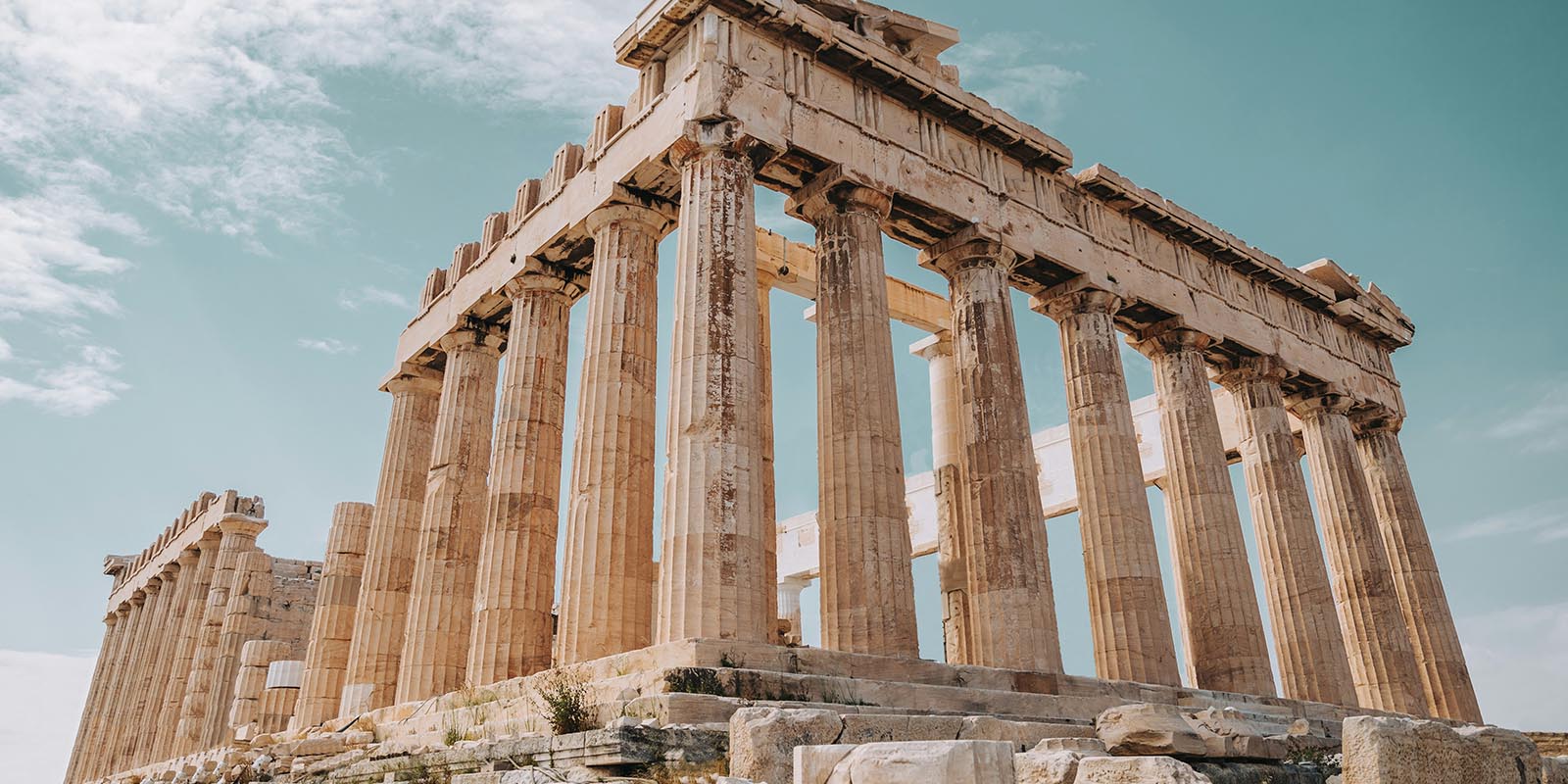

The Acropolis, a monumental citadel perched atop a rocky outcrop overlooking Athens, stands as an enduring symbol of ancient Greek civilisation. Revered for its architectural magnificence and cultural significance, the Acropolis has captivated visitors and scholars for centuries.
Architectural Marvels:Parthenon: The crown jewel of the Acropolis, the Parthenon, is an iconic temple dedicated to the goddess Athena Parthenos. Designed by architects Iktinos and Kallikrates, it represents the pinnacle of Doric architecture with its harmonious proportions and intricate friezes.
Erechtheion: A temple dedicated to both Athena and Poseidon, the Erechtheion is characterised by its Porch of the Caryatids - six sculpted female figures serving as columns. It stands as a testament to classical elegance and artistic innovation.
Propylaea: The monumental gateway to the Acropolis, the Propylaea, is an impressive architectural feat designed by the architect Mnesicles. It serves as both an entrance and a visual prelude to the sacred precinct.
Temple of Athena Nike: This elegant Ionic temple, dedicated to Athena Nike (Athena as the goddess of victory), stands near the entrance of the Acropolis. Its friezes depict mythological scenes and battles.
Historical Significance:Cultural and Religious Hub: The Acropolis was not merely a collection of buildings but the spiritual and cultural heart of ancient Athens. It housed temples, statues, and treasuries dedicated to various gods, emphasising Athens' devotion to the divine.
Periclean Legacy: The Periclean building program in the 5th century BCE, led by statesman Pericles, transformed the Acropolis into a monumental complex. Pericles sought to showcase Athens' cultural and political supremacy through these architectural marvels.
A Symbol of Democracy: The Acropolis and its structures symbolised the democratic ideals of ancient Athens. They served as a visual representation of the city's power, prosperity, and commitment to democratic governance.
Enduring Legacy:Architectural Influence: The architectural principles embodied in the Acropolis have influenced generations of architects worldwide. Its aesthetic harmony and mathematical precision set standards for classical architecture.
Cultural Heritage: Designated a UNESCO World Heritage Site, the Acropolis is a testament to the universal value of human culture. Its preservation and restoration efforts highlight its significance in global heritage.
Tourist Attraction: The Acropolis attracts millions of visitors annually, drawn by its historical richness and architectural splendour. It remains a pilgrimage site for those seeking to connect with the roots of Western civilisation.
The Acropolis, with its timeless beauty and historical resonance, encapsulates the essence of ancient Greek achievement. Its enduring legacy transcends time, inviting admiration and contemplation as a living testament to the artistic and intellectual brilliance of the classical world.
| Location | 37.9715° N, 23.7257° E |
|---|

The Acropolis, a symbol of classical Greece, served as a fortified citadel and religious center, featuring iconic structures like the Parthenon dedicated to the goddess Athena.
Ancient Greek art and architecture, with its harmonious proportions and timeless elegance, continue to inspire awe and admiration millennia later.
Discover
Greek mythology, a rich tapestry of gods, heroes, and mythical creatures, captivates the imagination with its tales of love, betrayal, and epic adventures that delve into the depths of the human psyche.
Discover
Ancient Greek history, marked by remarkable achievements in democracy, philosophy, and warfare, shaped the foundation of Western civilization, leaving an indelible legacy of innovation and cultural influence that continues to resonate to this day.
Discover
The ancient Greek Olympics, held in Olympia every four years, celebrated athleticism, unity, and cultural pride, serving as a testament to the enduring spirit of competition and excellence that transcends time and borders.
Discover
Ancient Greek wars, such as the Persian Wars and the Peloponnesian War, were pivotal conflicts that shaped the course of history, highlighting the struggle for power, independence, and the clash of civilizations in the ancient Mediterranean world.
Discover
Ancient Greek culture and society, characterized by its emphasis on art, philosophy, and civic engagement, fostered a vibrant intellectual and social landscape where innovation flourished, democracy thrived, and the pursuit of knowledge and excellence was celebrated as fundamental values of civilized life.
Discover
Find out more about ancientgreece.com